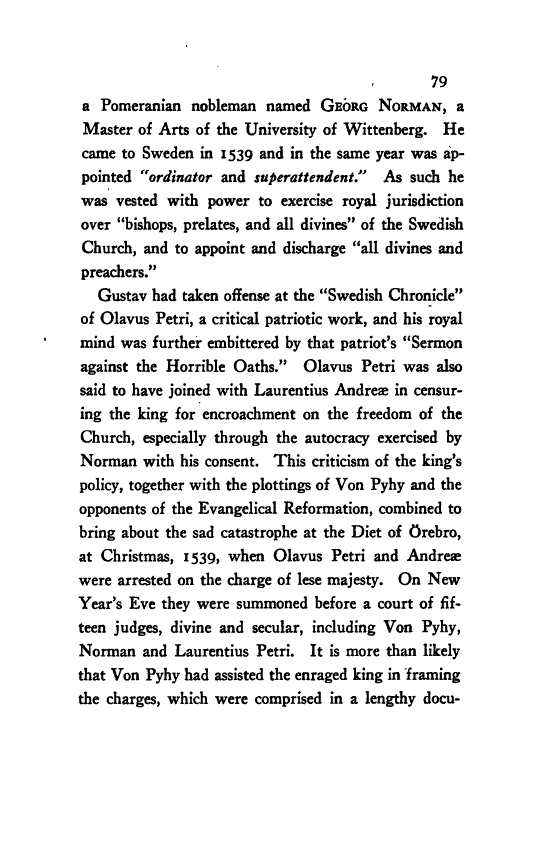
Full resolution (TIFF) - On this page / på denna sida - III. The Reformation of the Church in Sweden

<< prev. page << föreg. sida << >> nästa sida >> next page >>
Below is the raw OCR text
from the above scanned image.
Do you see an error? Proofread the page now!
Här nedan syns maskintolkade texten från faksimilbilden ovan.
Ser du något fel? Korrekturläs sidan nu!
This page has never been proofread. / Denna sida har aldrig korrekturlästs.
79
a Pomeranian nobleman named Georg Norman, a
Master of Arts of the University of Wittenberg. He
came to Sweden in 1539 and in the same year was
appointed "ordinator and superattendent" As such he
was vested with power to exercise royal jurisdiction
over "bishops, prelates, and all divines" of the Swedish
Church, and to appoint and discharge "all divines and
preachers."
Gustav had taken offense at the "Swedish Chronicle"
of Olavus Petri, a critical patriotic work, and his royal
mind was further embittered by that patriot’s "Sermon
against the Horrible Oaths." Olavus Petri was also
said to have joined with Laurentius Andreae in
censuring the king for encroachment on the freedom of the
Church, especially through the autocracy exercised by
Norman with his consent. This criticism of the king’s
policy, together with the plottings of Von Pyhy and the
opponents of the Evangelical Reformation, combined to
bring about the sad catastrophe at the Diet of Orebro,
at Christmas, 1539, when Olavus Petri and Andreae
were arrested on the charge of lese majesty. On New
Year’s Eve they were summoned before a court of
fifteen judges, divine and secular, including Von Pyhy,
Norman and Laurentius Petri. It is more than likely
that Von Pyhy had assisted the enraged king in framing
the charges, which were comprised in a lengthy docu-
<< prev. page << föreg. sida << >> nästa sida >> next page >>